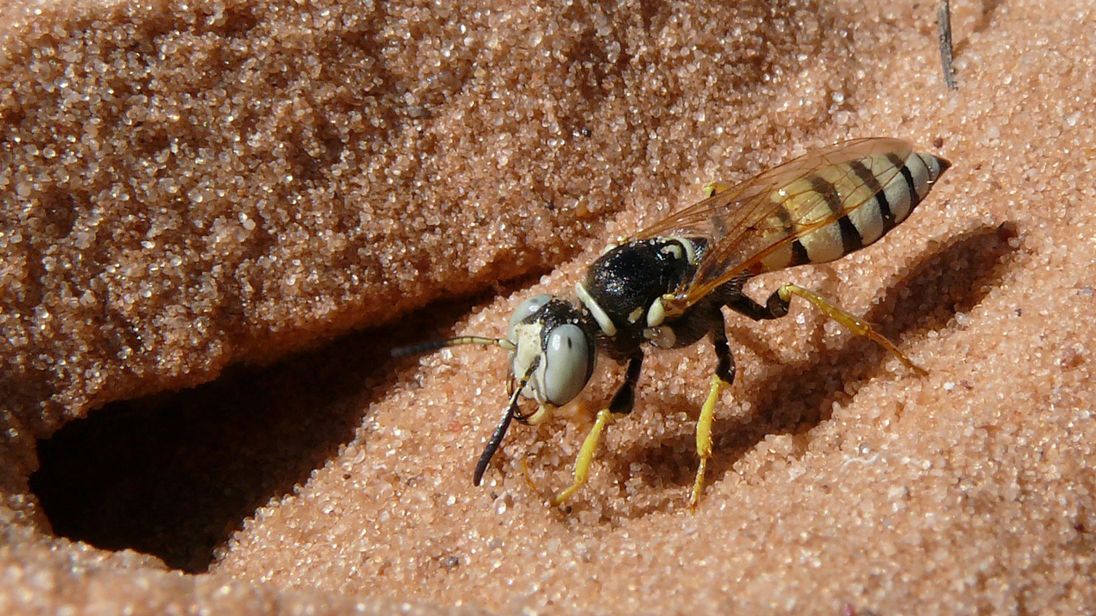A study reveals the symbiotic relationship has existed since the Cretaceous period and has changed very little since then.
Alexander Fleming discovered penicillin in 1928, but a species of insect called the beewolf beat him to antibiotics by about 68 million years.
A team of scientist in Germany have discovered how insects team up with symbiotic bacteria which produce an antibiotic cocktail, immunising them against dangerous infections.
The beewolf is neither a bee nor a wolf, but a type of solitary digger wasp which drags paralysed bees into its underground nest where they are eaten by its young.
When the beewolves’ larvae hatch from their eggs they feed on the bees and hibernate in a cocoon in the nest their mother has dug into the ground.
However, while hibernating, the larvae in their cocoons are vulnerable to the spores of dangerous fast-growing fungi which are omnipresent in the soil.
Beewolves have evolved a defence mechanism against this over millions of years, according to a team of scientists from the Johannes Gutenberg University and the Max Planck Institute for Chemical Ecology.
In a symbiotic relationship, the wasps actually breed bacteria in their antennae and rub the bacteria on the walls of the brood cells in which their larvae develop.
When the larvae begin to spin their cocoon they mix the bacteria in with their silk, and the cocktail of antibiotics produced by the bacteria creates a protective layer to prevent the dangerous fungi from infecting the cocoon and killing the larvae.
A study published in the Proceedings of the National Academy of Sciences journal reveals that the symbiotic relationship has existed since the Cretaceous period and has changed very little since then.
“We had expected that some beewolf symbionts evolved new antibiotics to complement their arsenal over the course of evolution in order to help their hosts combat new or resistant mold fungi,” said Professor Tobias Engl, the lead author of the study.
However, the researchers discovered that the original antibiotic cocktail seems to have been so powerful that it has not changed since.
Of particular interest to the researchers was how the antibiotic cocktail seems to have been effective against a wide variety of fungi, as despite the ubiquity of antibiotics in the beewolf population there has been no MRSA-like resistant pathogen.
This may be because beewolves live in small populations and frequently relocate, according to Professor Martin Kaltenpoth, who headed the Max Planck Research Group until he became Professor of Evolutionary Ecology in Mainz in 2015.
Professor Kaltenpoth explained that this meant that “resistant pathogens have little opportunity to spread within or between populations”.













